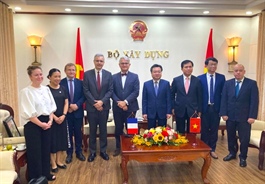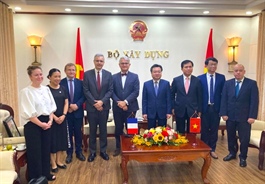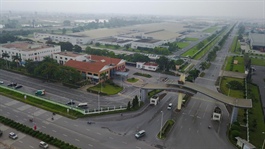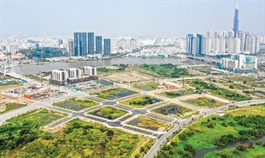Developers clamour for legal clarity
Developers clamour for legal clarity
Real estate leaders suggest that detailed regulations are needed to promote a healthy condotel, officetel, and resort villa sector in Vietnam.

Nguyen Manh Ha, vice chairman of the Vietnam Real Estate Association, said that tourism real estate needs to break down barriers to development as soon as possible, in order to move alongside the general economic recovery.
“Currently, mechanisms and policies for resort real estate are unclear, especially in terms of new types of real estate such as condotels, officetels, and second-home villas in resorts,” Ha said.
The legal framework has not kept pace with the reality of hospitality and resort real estate development, thus partly hindering the growth momentum of these types of property, Ha added. They are not given a right use certificate, known as a red book in Vietnam, because they are built on land plots permitted for developing tourism property only, and not for residential projects.
Doan Van Binh, chairman of CEO Group, said that supply is scarce not only in Vietnam but worldwide due to the impact of the pandemic. “In addition, legal procedures are inadequate and overlap each other, which makes it difficult for businesses to implement new projects, leading to a lack of supply,” Binh said.
Tourism-resort real estate has been developing quickly in Vietnam over the past decade, and many investors have built resort projects alongside second homes for Vietnamese people or for rent.
Despite strong development, a common voice in terms of regulations has not been reached among the three ministries of construction; culture, sports and tourism; and natural resources and environment.
Condotels and various tourism properties are managed by all three ministries, but buyers are not granted red books because those properties are built on land planned for the purpose of manufacturing and trade, and set up for rent only and not long-term accommodation.
As a result, a series of projects have been entangled, and the resort real estate market has all but frozen in many localities after a previously hot development period.
To remove bottlenecks and create conditions for tourism and resort real estate development, Ha said, the government should release a document after consulting the National Assembly Standing Committee on how to apply the current law to solve the problems. “This would also be the basis for thoroughly amending relevant legal documents,” he said.
In the long run, to open up the tourism and resort real estate market and develop tourism, Ha added that it is necessary to have an effective policy to attract investment capital, which must bring benefits for all related parties and ensure increased revenues for the state budget.
“If condotels and resort real estate are treated in a more long-term manner, they would become more of an attraction for both developers and investors,” Ha added.
The current Law on Land has no regulated policies for condotels and resort villas. Developers in some localities have not reserved land plots for building essential public services such as schools, clinics, and markets, but still ensure convenient services for tourism such as sports, entertainment, and leisure activities. This type of land cannot be issued with a red book because it does not have essential services for the common residential area.
Doan Hong Nhung, deputy head of the Legal Department of Vietnam Real Estate Association, said while waiting for amendment of the 2013 Law on Land, it is possible to correct existing inadequacies and problems via under-law documents, such as decrees or joint circulars on the issuance of land rights certificates.
“This will help the market smoothly utilise the potential of land and attract foreign capital, helping the market develop transparently and effectively. If the legal obstacles are removed, surely tourism real estate products will continue to flourish,” Nhung said.
Hospitality and resort segments will still mainly rely on solid domestic tourism demand, but the gradual piloting of localities in welcoming foreign guests is a good opportunity to contribute to the recovery of Vietnam's tourism market at its fastest speed.























